Fellows Planetary Spaces (2023)
Fellows Planetary Scholars & Artists in Residence Program 2023: Planetary Spaces
Adenike Titilope Oladosu
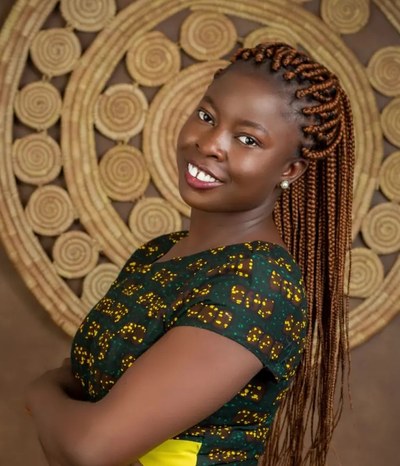
Adenike Titilope Oladosu is an ecofeminist, ecoreporter, and climate justice leader. As the founder of the I Lead Climate Action initiative, she advocates the establishment of a green democracy across Africa and the restoration of Lake Chad. She regularly brings her climate initiatives to public attention in the context of both international and local fora, in order to contribute to establishing peace, security, and equality in Africa and the Lake Chad region in particular.
Oladosu will again take up residence in Giessen in 2024 as the Panel will act as the host institution during her International Climate Protection Fellowship with Alexander von Humboldt Foundation, Berlin.
Project:
Using Earth Observation to Restore Shrinking Planetary Spaces: A Case Study of Lake Chad
Adenike Oladosu’s fellowship project utilizes remote sensing technologies such as Earth observation (EO) satellites to examine Lake Chad as a severely threatened planetary space from the distance and to communicate insights to the wider public. It develops concrete strategies for tackling the complex, climate change related crisis and enabling a peaceful transition and resolution of the diverse conflicts connected to it. Since the livelihoods of the population hinges most intrinsically on the availability of water from Lake Chad, the drastic decrease of water supply causes multi-layered problems in the region. Therefore, the project combines research into this endangered ecosystem with socio-political activism, as well as with workshops, discussions and an exhibition that seek to educate about the planetary dimensions of the crisis.
Jason Waite
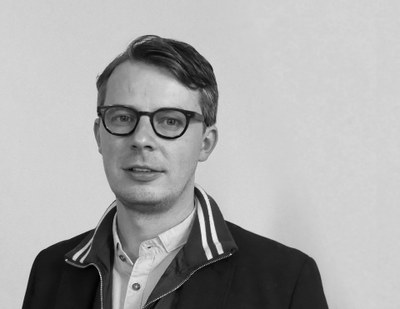
Project:
Non-Human Flourishing in Toxic Planetary Spaces
In 2021, the Fukushima exclusion zone was larger than the city of Frankfurt and has been closed to the public since 2011 ― displacing tens of thousands of residents. Geographers make a distinction between “animal spaces” where there is a spatial order of non-humans by humans, and “beastly places” demarcating the lived areas that non-humans order themselves. The Fukushima exclusion zone is a site of planetary seepage, before the disaster it was an agrarian “animal space,” now post-nuclear fallout, for the past ten years it has become a “beastly place,” yet the government is planning for residents to return in the future.
Within the radioactive exclusion zone, domestic pigs released by evacuated farmers have mated with wild boar, forming a new hybrid. The fellowship project explores the hidden lives of these boars through an interdisciplinary analysis of new video footage from cameras just installed in the zone. These images offer a glimpse into the “beastly place” and have the capacity to uncover how non-humans have adapted to their radioactive environment. This toxic space recalls both the older, more radioactive phase of the planet, while non-human inhabitants of the zone could hold important lessons for our future survival.
Juan Pablo Pacheco
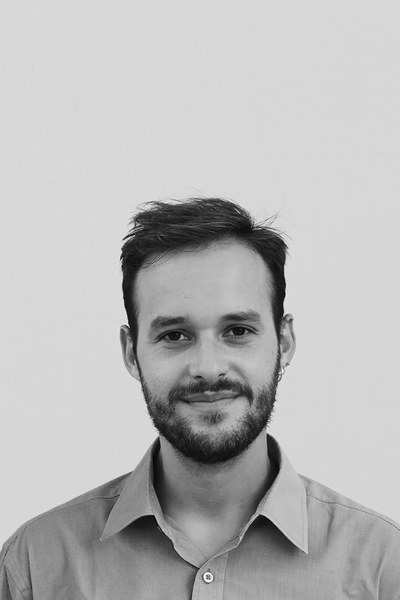
Juan Pablo Pacheco is a visual artist and writer driven by questions about the interdependence of technology, territory, and ecology, seeking to imagine media beyond extraction. In addition to working with text, audiovisual media and digital space, he has also produced laboratories that promote collaborative experimentations with digital and analog technologies. He has been an adjunct professor in the art departments of the Royal Academy of Fine Arts in The Hague (The Netherlands) and Universidad Javeriana (Colombia), and in the Digital Narratives program at Universidad de los Andes (Colombia). He has also been a programming coordinator at Plataforma Bogotá and at Espacio Odeón in Colombia. His texts and works have been disseminated and developed at: the Jan Van Eyck Academie, Rib, and Varia (The Netherlands), the 2022 International Symposium on Electronic Art ISEA, Espacio de Todo (Spain), Kunstenfestivaldesarts and a.pass (Belgium), Transmediale and PACT Zollverein (Germany), Museo Carrillo Gil (Mexico), Festival de la Imagen, MAMU and N-menos-1 (Colombia), Journal of Visual Culture (UK), CSPA Quarterly (Canada), among others.
https://www.juanpablopacheco.com/
Project:
Environmental Identities at the Ocean Floor - Collaboration with Bruno Alves de Almeida
The fellowship project “Environmental Identities at the Ocean Floor” weaves together two ongoing research threads. On the one hand, the investigation carried out in the project Environmental Identities curated by Bruno Alves de Almeida, which delves into the co-defining relation between self, social identity and the natural environment in a world increasingly marked by unsustainable notions of humanity. And on the other hand, Juan Pablo Pacheco Bejarano’s artistic research, which proposes reflections on the territorial, social, and ecological dimensions of digital technology, focused on the relationships between the internet and water. Together they explore the forms of life and the flows of energy that thrive on the ocean floor, and their influence on our lives and identities on the planet’s terrestrial surface. The research focuses on scientific and theoretical discussions around Eurythenes Plasticus, a marine crustacean found at the deepest region of the Mariana Trench and on submarine cables, a deep-sea information infrastructure that increasingly mediates the virtual worlds we inhabit. In addition, they will be conducting a “wet workshop”, through which they hope to share reflections around water, space and technology through immersive experiences in bodies of water.
Bruno Alves de Almeida
*the fellowship was not realized due to personal reasons*
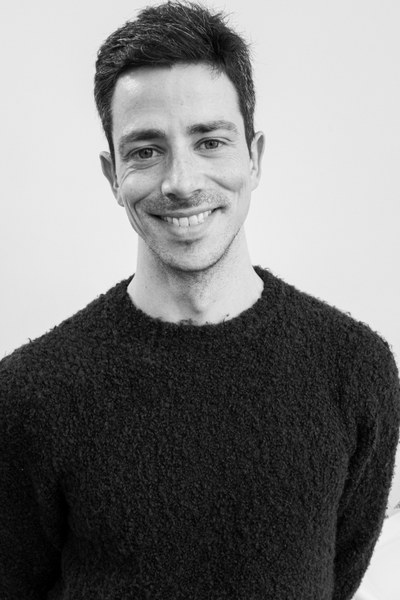
Project:
Environmental Identities at the Ocean Floor - Collaboration with Juan Pablo Pacheco
Sibylle Anderl (Publication Fellowship)
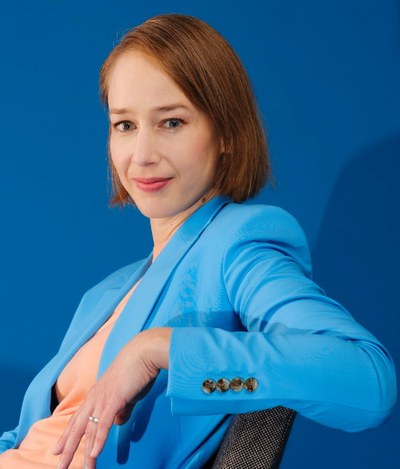
For the year 2023, the Panel on Planetary Thinking has awarded another Fellowship for a publication project to the renowned astrophysicist and philosopher Dr. Sibylle Anderl. During the Fellowship she will be working on a publication investigating the sun from interdisciplinary perspectives. Ms. Anderl heads the science section of the Frankfurter Allgemeine Zeitung and Sonntagszeitung, is co-editor of "Kursbuch" and appears as a TV presenter, such as for the monthly magazine "Space Night Science." After completing her master's degree in philosophy, Ms. Anderl received her PhD in astronomy/astrophysics in 2013. Between the years 2013 to 2020 she was first a Postdoc and after 2017 a visiting scientist at the Institut de Planétologie et d'Astrophysique (IPAG) in Grenoble. Her research interests include the early stages of star formation, astrochemistry, and philosophy of science. Her best-selling books on "Dark Matter" (2022) and "The Universe and Me" (2018) are now to be followed by a book on the sun. The panel considers itself fortunate for being able to work with such a high-profile scientist who also excels in popular science. She will participate in events of the Fellowship Program.
Project:
The Sun. A Discovery.
We all consist of stardust. This often quoted insight of astrophysics establishes a connection between our own existence and our own home star, the sun. As almost all elements besides helium were born inside stars by nuclear fusion or were created when stars ended their life, we are dependent to the sun not only with respect to our material constitution but in practically all aspects of our life. For humanity, viewing and observing our sun has been an ever-renewed and reinterpreted discovery, sometimes leading to anthropocentric pride, sometimes to planetary humility.
The Fellowship Project looks at the history of the Sun's discovery from three angles: (1) it describes how the sun was discovered and what humanity knows about it today; (2) it examines the forms of "sunrise" in cultural ideas and practices; and it asks (3) how far "solar power" might open up sustainable ways of living.
